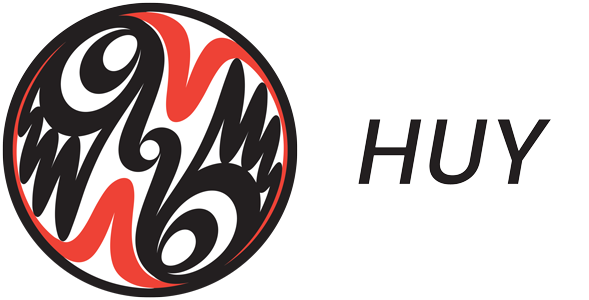Indigenous Prisoner Religious Rights Organization Celebrates Ten Years
Huy, an Indigenous religious freedoms advocacy organization, commemorated ten years of advocacy on behalf of Indigenous prisoners in the United States. The organization has raised over $250,000 for prison religious programs and pow wows, and on Friday Huy leadership announced plans to continue advancing and defending the human rights of Indigenous prisoners, who are disproportionately incarcerated in American prisons.
“From appearing before the U.S. Supreme Court to interceding with the United Nations, we are proud to give voice to the voiceless,” said Gabe Galanda, an Indigenous civil rights lawyer and Chair of Huy’s Board of Advisors. “Despite mistakes they have made, our incarcerated relatives still deserve the right of religious freedom and to be treated with dignity at all times.”
The organization commemorated its ten-year anniversary in north Seattle last week along with Washington State Department of Corrections (DOC) Secretary Cheryl Strange, Deputy Secretary Sean Murphy, past Secretary Eldon Vail. Seattle City Council President and Blackfeet citizen Debora Juarez and Evergreen State College Tribal Liaison and Lummi citizen Lyn Dennis, who were also in attendance.
At the event, Huy was presented with a $50,000 check by Coordinated Care, a healthcare organization that made the gift to support the organization’s efforts to bring healing and wellness to incarcerated Indigenous persons.
The group heard testimonials from two formerly incarcerated men, Navajo citizen Leandru Willie and Winnebago citizen Osceola Fortner, about how Huy’s work helped them heal while incarcerated and in turn successfully re-enter society. Willie and Fortner are now helping other incarcerated Indigenous men find their “right path” in life—what Indigenous peoples call “the Red Road”—both during incarceration and after being released from prison.
Huy was formed byIndigenous leaders in 2012 after a successful inter-Tribal and urban Indigenous political campaign to restore Indigenous prisoner rights eliminated by the DOC two years prior. The organization has since monitored state corrections agencies throughout the U.S. from impeding Indigenous prisoners’ right to worship and rehabilitate through traditional religious practices.
Represented by the Native American Rights Fund, Huy has helped win lawsuits for Indigenous prisoners across the country. In 2015, Huy helped an Indigenous prisoner successfully challenge the Massachusetts Department Corrections’ closure of a sweatlodge, in a case that went to the Massachusetts Supreme Court.
The next year Huy appeared before the U.S. Supreme Court on behalf of Indigenous prisoners in two matters regarding their right to wear unshorn hair. In Holt v. Hobbs, the U.S. Supreme Court affirmed that right. In 2016, Huy helped Native Hawaiians incarcerated by a private prison in Arizona bring a federal district court case that affirmed their right to possess sacred items and engage in traditional ceremonies.
Huy has also obtained diplomatic victories for Indigenous prisoners. In 2015, Huy spearheaded a political challenge to the State of South Dakota’s denial of Indigenous prisoners’ right to use tobacco in prayer.
Through diplomacy in Washington State, Huy has helped allow children’s attendance at pow wows, build new sweatlodges and harvest wood from state lands for Inipi ceremonies. In addition, Huy has helped create Indigenous medicine gardens on the grounds of numerous DOC facilities. Those gardens, which include sage, sweetgrass, lavender, and other plants that are harvested for use in prayer ceremonies, have attracted interest from corrections agencies in other states and countries including Canada.
Since 2013, Huy has also delivered international Indigenous prisoner human rights intercessions before the United Nations and U.S. State Department. Last month Huy interceded with U.S. Secretary of State Anthony Blinken and his excellency Ahmed Shaheed, the United Nations Special Rapporteur on the Right to Freedom or Belief, requesting they each help prevent the deprivation of Indigenous prisoners’ religious freedoms nationwide.
With the receipt of Coordinated Care’s gift, Huy eclipsed $250,000 in monies raised to provide rehabilitative opportunities for incarcerated Indigenous persons.
The organization annually funds pow wow celebrations and regalia-making for the 21 Indigenous groups (known as “Circles” or “Hoops”) in each of the DOC’s twelve prisons within Washington State. Huy has also funded pow wows in South Dakota and Oregon prisons, and provided funds to help rebuild prison sweatlodge structures in several other states.
Pronounced “hoyt” in the Coast Salish Lushootseed language, Huy means “see you again/we never say goodbye.” The organization intends to see, and cause incarcerated Indigenous persons to be seen, for the indefinite future.

